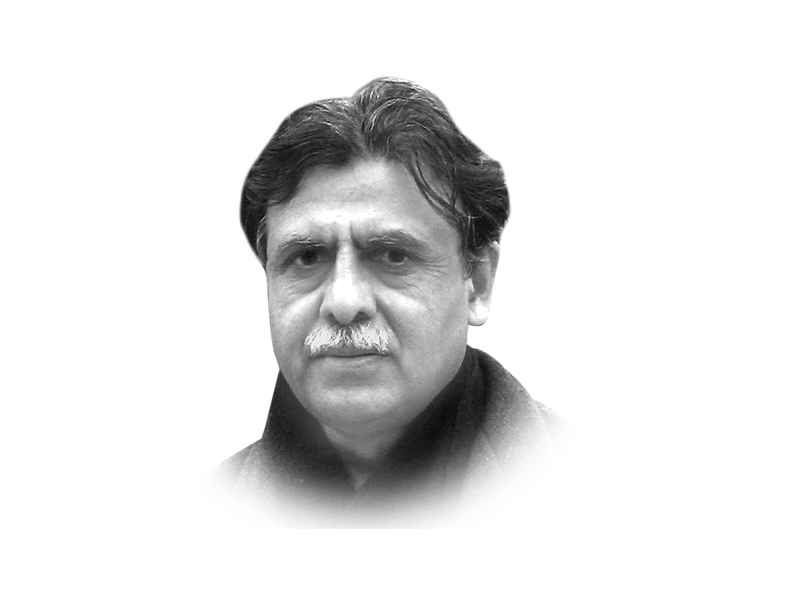
Recent feelers by a BJP spokesperson regarding the resettling of Kashmiri Pandits in separate townships in the Valley created a major furore amongst all political forces in the region leading to spontaneous protests and arrests. The BJP, as a coalition partner of Mufti Sayeed's PDP, is assiduously working on a plan to carve out separate enclaves for Kashmiri Pandits who left their homes in the 1990s in the wake of heightened violence and militancy in the Valley. These Pandits trekked to different parts of the country, and by and large, settled in places of their choice and convenience. Around 300,000 Pandits left the Valley over a certain period. Some of them preferred to stay in the Hindu-majority region of Jammu. It has been well over a quarter century now, but the central government in Delhi never sheds its intentions of bringing the Pandits back to the Valley. Attempts in the past have not met with success.
The Pandits, who are now settled in their relocated homes, have been little inclined towards the idea of resettling in the Valley despite orchestrations by certain civil society groups and implicit support of the centre, which is seen through the organising of rallies in favour of the move. An average Kashmiri Pandit does not see sense in living in a highly militarised zone, where brotherhood and bonding have gone missing. In the mid-1990s, the Indian government set apart some Rs3 billion for their resettlement and rehabilitation but the plan could not take off in view of the poor response by the Pandits. Recent plans aired by the BJP leadership should be seen in the backdrop of the party's long-term ambition of digging heels in the Valley and gaining some credible political space in a Muslim-dominated region where the party has met serious setbacks. It was routed in the Valley in the recently held state assembly elections. And now it is all set to roll out a Rs6 billion project for the resettlement of the Pandits while its major coalition partner, the PDP, is publicly distancing itself from this move.
Most Kashmiri Pandits are settled in Delhi, Noida, Mumbai and other parts of Maharashtra. Their children have grown up in an environment where they see more opportunities for personal fulfillment in the areas where they are living right now. The BJP, backed by the VHP and the RSS, however, has different designs and wants to play the Pandit card. The exodus of Pandits or even Muslims from Kashmir has never been an unusual phenomenon; this has been a normal occurrence throughout history. During Dogra rule, hordes of Kashmiri Muslims moved out of the Valley to the plains of Punjab. Likewise, soon after independence, around 20 per cent of the Kashmiri Pandit population of the time moved out of Muslim-dominated areas that were witness to a lot of disturbance.
The issue of internally displaced persons is not unique to Kashmiri Pandits in India. Adivasis, the tribals in the central Indian states, in the crossfire of Naxalite militancy and high-handedness of law-enforcement agencies, have also been on the run and have suffered through a far less settled life than the Pandits have. The current move by the BJP is ideologically driven, riding on the crest of the Hindutva wave and backed by the all-powerful VHP and the RSS. But the reality on ground is fairly complex. What has now become an anthropological bind is being treated as a managerial and political issue. It is, however, a far more complex issue involving the goading of reverse migration through a deliberate move which historically speaking, has little chance to succeed. Resettlement through reverse migration should not be seen as merely a political and humanitarian issue. It is a sociological proposition with innate irreversibility. There is no denying that the Pandits abandoned their homeland because they were insecure, but with 25 years having passed, they are now settled and entrenched economically and socially in their relocated homes. I recall meeting a Muslim Kashmiri businessman in 2000 in Jaipur, who had packed up his business in Srinagar because of the deteriorating security situation. He had no desire to return to the Valley even if things returned to normal. He was happy with his business and with the quality of life for his children in his adopted home in Jaipur. Similarly, it is the economic pull which will now determine the choices of the Kashmiri Pandits. This pull also entails a yearning for a better sense of security and freedom of movement which may not be available to them in their abandoned homes. Why would a Kashmiri Pandit, who is well-settled in and around Delhi, want to move back to a place, which by his/her act of abandonment has been branded as a conflict zone?
Looking at examples from other parts of the world, there had been one distinct reverse migration in US history. African-Americans moved out from the South to the North-East in the 19th and early 20th centuries. Later, in view of a strong economic pull and a sense of belonging, they moved back from the North-East to the urban South, which offered them better prospects for personal advancement at that point in history.
Some weeks ago, I met a young Muslim Kashmiri who was visiting Lahore. Kashmir figured prominently in our discussion as I could not help but betray my keenness on knowing about life in the place from which my elders had migrated to the plains of Punjab. In his view, Muslims in the Valley were not averse to the return of the Pandits. All they wish to see is a conducive security environment so that people from all communities can live in the same neighbourhoods rather than in separate townships, analogous to Jewish settlements. Settlements of this kind may further communalise politics. Muslims in Kashmir saw Pandits as an integral part of their society and acknowledged the contributions they had made to the region’s ethos. Pandits would never return to their homeland unless they have the ingrained feeling that it belonged to them as much as they belonged to it. In this saga of militancy and state repression, the biggest casualty has been ‘Kashmiriat' to which both Pandits and Muslims were wedded. As a distinct entity, the concept stood for empathy and deeper understanding, and for resilience and harmony between different faiths and races. Kashmiriat is what set Kashmiris apart from others in the subcontinent. The totality of Kashmiriat, according to my guest from Srinagar, was neither understood in India nor in Pakistan. The two communities, Pandits and Muslims, had been living in peace and amity. Even during the demolition of the Babri Mosque and the Gujarat pogrom, the valley stayed quiet, with the Hindus who were still living there amidst the Muslim majority, coexisting peacefully.
The return of the Kashmiri Pandits to the Valley, therefore, is organically linked with a roadmap for endurable peace in Indian-held Kashmir. This cannot be achieved by pointing fingers at each other. Throughout history, when given the choice, no social group has ever wished to be part of an uncertain future. The same applies to Kashmiri Pandits.
Published in The Express Tribune, May 19th, 2015.
Like Opinion & Editorial on Facebook, follow @ETOpEd on Twitter to receive all updates on all our daily pieces.














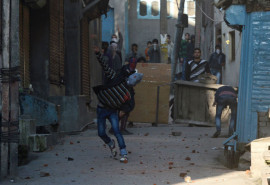
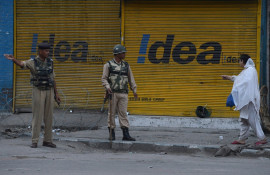


1713281138-0/US-Treasury-Secretary-Janet-Yellen-(2)1713281138-0-270x192.webp)
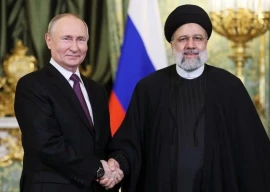
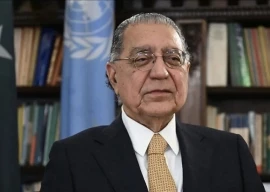
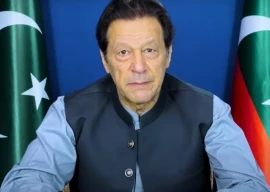






















COMMENTS (19)
Comments are moderated and generally will be posted if they are on-topic and not abusive.
For more information, please see our Comments FAQ